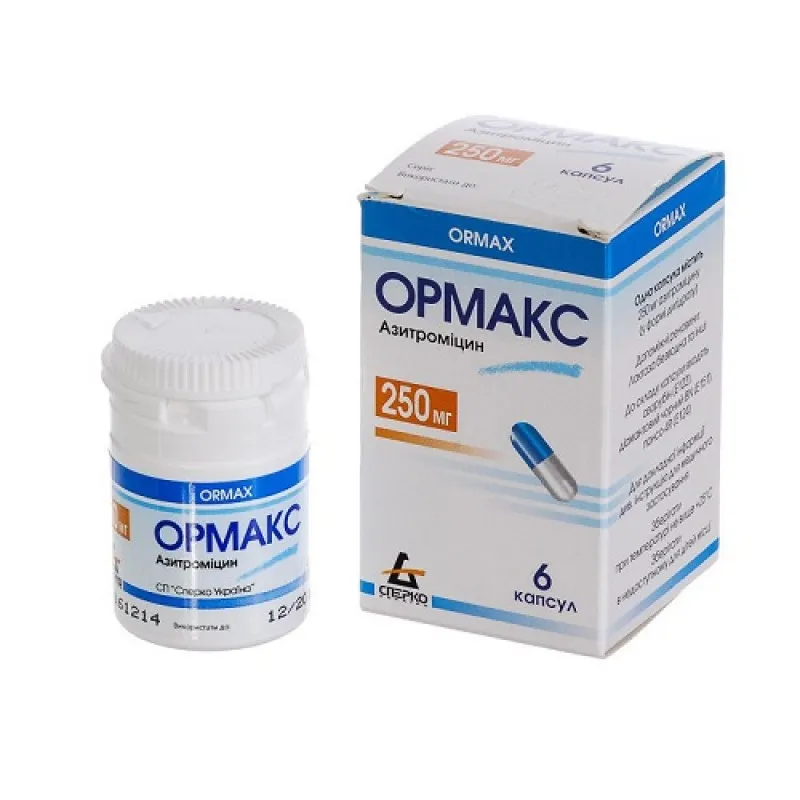Description
Ormax (Azithromycin) Capsules 0.25 g
Ingredients
- Each capsule contains 0.25 g of azithromycin as the active ingredient.
Dosage
- The usual dosage is one capsule (0.25 g) taken orally once a day.
Indications
- Ormax capsules are indicated for the treatment of bacterial infections such as respiratory tract infections, skin and soft tissue infections, and sexually transmitted diseases.
Contraindications
- Do not use Ormax capsules if you are allergic to azithromycin or any macrolide antibiotics.
Directions
- Take Ormax capsules as prescribed by your healthcare provider. Do not skip doses and complete the full course of treatment.
Scientific Evidence
- Azithromycin, the active ingredient in Ormax capsules, has been extensively studied for its efficacy in treating various bacterial infections. Research published in the Journal of Antimicrobial Chemotherapy has shown that azithromycin is effective in the treatment of respiratory tract infections and skin infections.
Additional Information
- It is important to complete the full course of Ormax treatment as prescribed by your healthcare provider to ensure the infection is fully treated and to prevent antibiotic resistance.
- If you experience any severe side effects or allergic reactions while taking Ormax capsules, seek medical help immediately.
- Azithromycin works by inhibiting bacterial protein synthesis, thereby stopping the growth and reproduction of bacteria. It is well-absorbed in the body and has a long half-life, allowing for once-daily dosing convenience.





